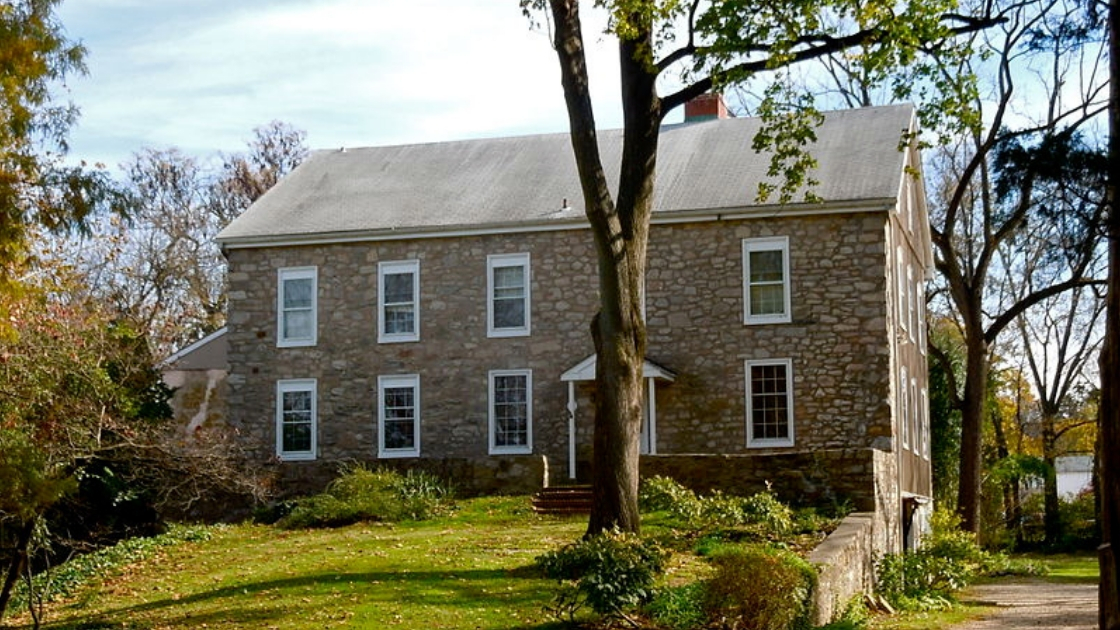The Whitemarsh Township Board of Supervisors voted 5-0 during its April 8th meeting to approve an agreement of sale for the township and the Whitemarsh Art Center to purchase the property that is home to historic Abolition Hall near the intersection of Butler Pike and Germantown Pike in the Plymouth Meeting section of the township. The purchase price is $3.95 million.
A former Underground Railroad station, Abolition Hall was built in 1856 by George Corson. Abolitionists, including Frederick Douglas, Harriet Beecher Stowe and William Lloyd Garrison spoke there. The property consists of three buildings that are listed on the National Register of Historic Places (Abolition Hall, Hovenden House and the Main House), plus the Marple Lane House and a field.
In July of 2020, after about a two-and-a-half-year process, developer K. Hovnanian walked away from an agreement of sale and an approved redevelopment plan for the property. Its plan was to build 67 townhouses on the field (Abolition Hall and some other structures would have remained). Throughout the approval process, the Friends of Abolition Hall challenged unsuccessfully the township’s granting approval of the townhouse proposal in public meetings, hearings, and through the courts.
Once Hovanian abandoned its plan, the township approached the owners about purchasing the 10.45-acre property. The funds are coming from the township’s open space fund and the Whitemarsh Arts Center which is working with an unnamed donor for its contribution to the purchase price. The township is not legally permitted to pay more than its appraisal of the property and the agreement of sale states that the art center’s donor is anticipated to make a donation of $2 million.
“This is such an important moment for our community and the entire Philadelphia region,” said Whitemarsh Supervisor Chair Laura Boyle-Nester. “Abolition Hall, the Hovenden House and the Main House are a significant piece of our history and we could not be more excited to protect them for future generations.”
“The donor and the Township have created a once-in-a-lifetime opportunity to preserve history and extend educational opportunities for the community,” said Whitemarsh Art Center Board of Directors President Dan Zuena.
While the township has committed itself to the agreement, the art center still needs to finalize its agreement with the donor. The agreement of sale gives the Township and Art Center a 45-day inspection period.
The Whitemarsh Art Center was established in 1964 and offers day and evening programming for children and adults with a goal of enriching the community by fostering inspiration, appreciation, and engagement in the arts. The center is currently located at Cedar Grove Barn and plans to move to the Abolition Hall property.
While more widely known for its connection to the Abolitionist movement, the barn was used as an art studio in the late 1800s by Irish-born artist Thomas Hovenden, who had married into the Corson family. The property continues to be the home of a member of the Corson family, Ann Wilson, and she and her husband Roy Wilson, utilize the barn for an art studio. You can read about the property’s long history involving art here.
Roy Wilson spoke during the public comment period of the meeting and while happy that the property is to be preserved, warned about what he believes is a plan within Montgomery County and township staff to push straightening Butler Pike. Butler Pike has a dogleg at the intersection of Germantown Pike and the only way to straighten the roadway would be to cut through the Abolition Hall property.
Once the sale is final, the township plans to engage the public on how to utilize the property.
More to come.

